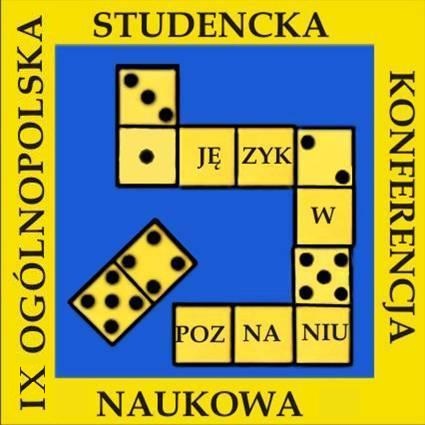IX edycja - abstrakty
Główna |
Organizacja |
Abstrakty |
Program |
Plakat |
Galeria |
Wytyczne |
Ankieta |

Prezentujemy listę referentów oraz tytułów wystąpień wraz ze streszczeniami. Zapraszamy do lektury!
Przypominamy, że język, w którym podany jest tytuł, jest równoznaczny z językiem całego wystąpienia.
Pod każdym streszczeniem umieszczony jest skrócony program, dzięki któremu można dowiedzieć się, jakie inne referaty będą wygłaszane podczas danej sekcji.
Piotr Korsak, Iga Krzysik (Poznań)
Foreign-accented speech and the efficiency of automatic speech recognition: The case of Siri®
The technology of automatic speech recognition has been developing for decades, only recently, however, has it entered broadly available devices. Due to the restricted range of language options, some users have to resort to their second or additional language to communicate with their device. Researchers investigated automatic speech recognition accuracy predominantly in the context of native speakers (e.g. Frädrich and Anastasiou 2012, Assefi et al. 2015). However, the descriptions of the relation between the degree of foreign accentedness and automatic speech recognition are based predominantly on anecdotal evidence.
The present study will focus on speech recognition system Siri® devised for iOS in the context of foreign-accented speech recognition. Siri® exhibits the highest accuracy in recognition of native accents (Sadun and Sande 2014: 31). Therefore, the speakers of Polish have to resort to commands in other languages. The present study will examine the efficiency of Siri® in recognition of Polish-accented English of participants on different levels of English proficiency (L1 - Polish, L2 - English). Siri® will be presented with minimal pairs recorded by 5 participants, featuring selected vowel contrasts problematic for Polish learners of English (e.g. /ɪ/ - /i:/, /æ/ - /ɛ/, /ʊ/ - /u:/). The prediction for the present study is that the highest error rate will be observed for the recognition of the minimal pairs recorded by the participants with the lowest L2 proficiency. Consequently, the error rate will be inversely proportional to the participants' proficiency in L2. The present examination will constitute a pilot study preceding a further, extended research of automatic foreign-accented speech recognition.
Gdzie i kiedy:
| W tym samym czasie ... 416, 504, 525 | sala: 526 moderacja: Tomasz Mowlik |
| 9:45-10:00 | Piotr Korsak, Iga Krzysik (UAM) - Foreign-accented speech and the efficiency of automatic speech recognition: The case of Siri® |
| 10:00-10:15 | Alicja Piotrowska (UAM) - Group genitive in Swedish: S-genitive as a phrase marker |
| 10:15-10:30 | Kinga Uszko-Skrzypczak (USZ) - Compounding revisisted |
| 10:30-10:45 | Barbara Nowosielska (UW) - Abstract nominalizations with names of states. A corpus-based study in academic and journalistic writing |
| 10:45-11:05 | dyskusja |